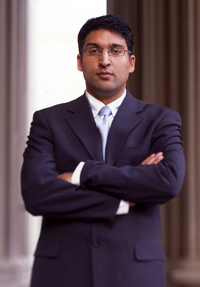To Check the President's Power of Life and Death, How About a Court He Is Free to Ignore?

Some critics of President Obama's "targeted killing" policy have suggested that a tribunal modeled after the court created by the Foreign Intelligence Surveillance Act (FISA) could help ensure that the right people get blown up. Georgetown law professor Neal Katyal, who served as acting solicitor general after Obama named Elena Kagan to the Supreme Court, thinks that's a bad idea, as he explains in a New York Times op-ed piece:
There are many reasons a drone court composed of generalist federal judges will not work. They lack national security expertise, they are not accustomed to ruling on lightning-fast timetables, they are used to being in absolute control, their primary work is on domestic matters and they usually rule on matters after the fact, not beforehand.
Even the questions placed before the FISA Court aren't comparable to what a drone court would face; they involve more traditional constitutional issues—not rapidly developing questions about whether to target an individual for assassination by a drone strike.
First of all, whoops! Didn't Katyal get the Justice Department memo declaring that shooting a missile at someone whom the president identifies as a threat to national security should never be called an "assassination"? As the DOJ white paper summarizing the legal rationale for killing American citizens suspected of ties to Al Qaeda or its allies explains, "A lawful killing in self-defense is not an assassination."
Exactly what counts as self-defense, of course, is precisely the issue, as Sen. Rand Paul (R-Ky.) suggests in a recent Human Events essay:
If you're launching a missile on U.S. troops, if you are launching a missile toward the United States, if you are hijacking a plane, if you are setting off a bomb, if you are leveling an AK-47 at any one of our soldiers—by all means and with great expedition, we will drop a drone bomb on you. No one is arguing against employing immediate and lethal force against anyone whose finger approaches a trigger.
President Obama's drone killing goes a great deal further, however. Mr. Obama tells us that an "imminent threat" need not be "immediate."
But if the threat is not immediate, shouldn't there be time for indepedendent review of the decision to condemn a man to death? Paul argues that a U.S. citizen who joins Al Qaeda is guilty of treason and should be tried for that crime, in absentia if necessary. Why have a trial? Because someone accused of terrorism is not necessarily guilty of terrorism, just as someone accused of rape or murder is not necessarily guilty of rape or murder. While Paul deems the case against Anwar al-Awlaki pretty solid, for instance, he is not so sure about Awlaki's 16-year-old son, who was killed by a drone a few weeks after his father. "Can a 16-year-old be a terrorist or a traitor?" Paul writes. "Absolutely, but am I the only American who believes that this 16-year-old also deserved the contemplation of a jury and a judge?"
While Katyal argues that there is no time for such legal niceties, Paul notes that Awlaki "was targeted for months—long enough and publicly enough that his father actually protested in court but was not heard." It seems the Obama administration's real imperative is not timeliness so much as keeping the process within the executive branch, as Katyal's proposed solution would:
Imagine…that the president had an internal court, staffed by expert lawyers to represent both sides. Those lawyers, like the Judge Advocate General's Corps in the military, would switch sides every few years, to develop both expertise as repeat players and the ability to understand the other point of view.
The adjudicator would be a panel of the president's most senior national security advisers, who would issue decisions in writing if at all possible. Those decisions would later be given to the Congressional intelligence committees for review. Crucially, the president would be able to overrule this court, and take whatever action he thought appropriate, but would have to explain himself afterward to Congress.
Although Obama argues that people killed by drones are already getting all the process that's due, Katyal seems to disagree. The adversarial process he suggests (which apparently would not be limited to American citizens) is a new wrinkle, although in the end the decision about who should live and who should die would still come down to one man, which is the crux of the problem.
Katyal is right to question whether the FISA court, which convenes in secret and never hears from lawyers representing terrorism suspects, is a good model to follow. "Between 1979 and 2011," he notes, that court "rejected only 11 out of more than 32,000 requests [for surveillance warrants]—making the odds of getting a request rejected, around 1 in 3,000, approximately the same as those of being struck by lightning in one's lifetime." But is there any reason to think an executive branch tribunal completely subservient to the president would prove to be more skeptical of the government's claims? Even if it did, it would hardly matter, since the president still could do as he pleased.


Show Comments (114)